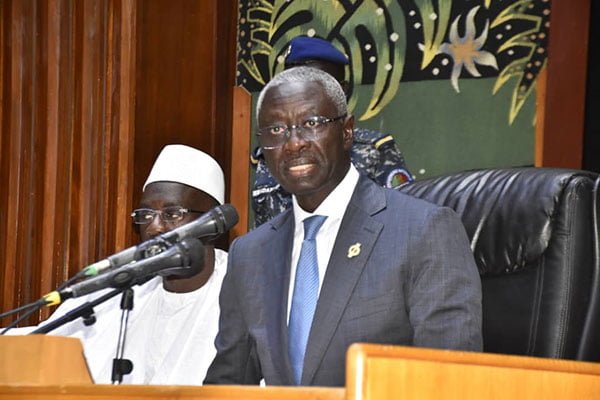
The newly elected President of the Republic, Bassirou Diomaye Faye, finds himself in a situation similar to that of Me Abdoulaye Wade in 2000 and Macky Sall in 2012. Like his predecessors, he is facing an Assembly dominated by a relative majority of the new opposition. This has far-reaching consequences.The current composition of the parliament is not favourable to the current regime.
The coalition Benno Bokk Yakaar, the new opposition, holds 82 seats; therefore, even without the support of Taxawu, which is no longer a member of Yewwi, and the Wallu members of parliament, the new government may face challenges in passing their bills. Not to mention that the Prime Minister’s General Policy Statement, given by Ousmane Sonko, could be complicated with a potential motion of no confidence. “Les Échos”, in its publication this Tuesday, explores the possibilities available to Bassirou Diomaye Faye and his team, namely, working towards collaboration with the members of Benno, which may not be easy, or dissolving the National Assembly, a measure that would have serious consequences on the country’s progress.
Regarding the dissolution of the National Assembly, Article 87 of the constitution stipulates that “dissolution cannot occur during the first two years of the legislature.” The decree of dissolution sets the date for the election of new members to take place within 60 days minimum and 90 days maximum after the publication of the decree. As “Les Échos” pointed out, the dissolved Assembly “cannot reconvene, but the mandate of the members of parliament only expires on the date of the proclamation of the election of new members of the Assembly.” Therefore, one must wait until September of this year for the National Assembly to be dissolved.
With the minimum 60-day or maximum 90-day period required for the organization of new legislative elections, the people will go to the polls by December at the latest. Moreover, the time factor must not be overlooked, as it takes time for the results to be announced and the new members to be sworn in, leaving us at the beginning of 2025.
In this case, the new government may find itself facing challenges in passing the budget, which is normally done towards the end of the year (between November and December) to secure the budget and work with stability from the beginning of the year. Otherwise, the consequences of a budget vote deadlock due to dissolution can also be drastic. What can be done in the face of this opposition majority and the possible consequences of a blocked budget vote? The thinking may be further refined on the side of Diomaye and his Prime Minister Ousmane Sonko.
Brought to you by Senegal English Media Group


